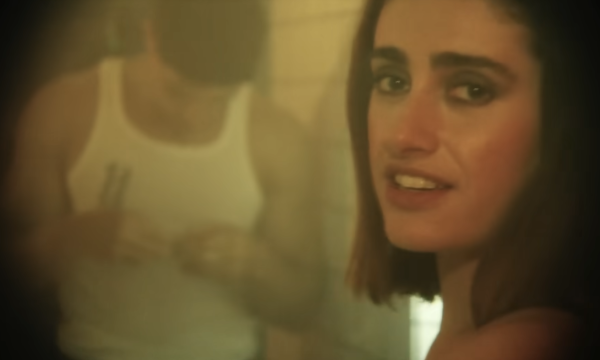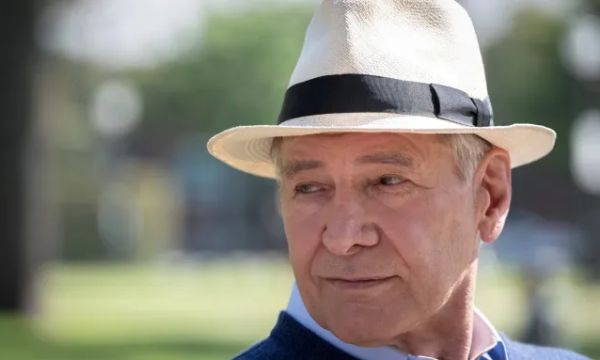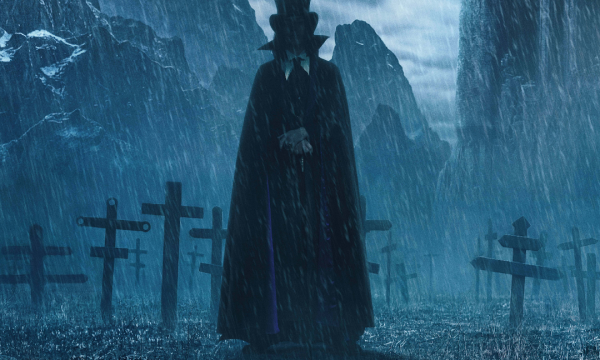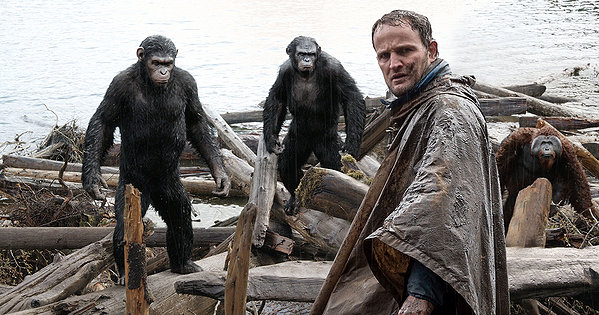 It all began with Charlton Heston. His iconic 1968 motion picture spawned a slew of sequels; a remake in 2001, and another rebooted franchise in 2011. “Dawn of the Planet of the Apes” is the eighth such ideation of the series. It is also the direct sequel to 2011’s “Rise of the Planet of the Apes.” This time, however, James Franco has been swapped out by “Zero Dark Thirty” star Jason Clarke and original helmer Rupert Wyatt (The Escapist) has been replaced by “Cloverfield” director Matt Reeves. The resulting picture isn’t just the frontrunner for film of the summer; it also might be the best “Apes” movie ever made.
It all began with Charlton Heston. His iconic 1968 motion picture spawned a slew of sequels; a remake in 2001, and another rebooted franchise in 2011. “Dawn of the Planet of the Apes” is the eighth such ideation of the series. It is also the direct sequel to 2011’s “Rise of the Planet of the Apes.” This time, however, James Franco has been swapped out by “Zero Dark Thirty” star Jason Clarke and original helmer Rupert Wyatt (The Escapist) has been replaced by “Cloverfield” director Matt Reeves. The resulting picture isn’t just the frontrunner for film of the summer; it also might be the best “Apes” movie ever made.
Fast forwarding ten years after “Rise,” “Dawn” takes place in a dystopian not so distant future where a lethal disease (known as the Simian Flu) has all but decimated the entire human population. As the film opens, the audience has no idea if there are any humans left on planet Earth. That’s because the first twenty minutes of screen time takes place in the Muirs Woods, right outside of San Francisco, where a humongous colony of apes call home.
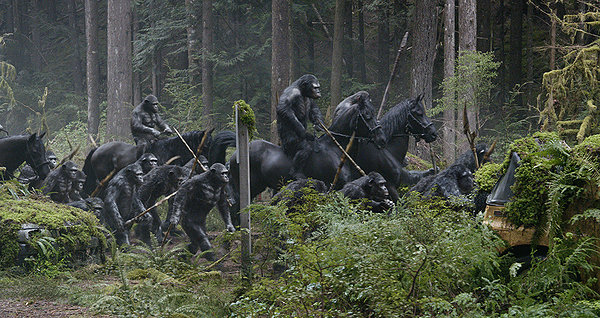 Among these apes is Caesar, who fans of “Rise” will remember as James Franco’s hyper-intelligent primate companion. Within the new ape-centric world, Caesar is the clear leader of the Muirs Woods colony. With a teenage (assuming apes go by human years, that is) son, wife, and newborn in tow, Caesar rules his fellow chimps with the mantra “ape not kill other ape.”
Among these apes is Caesar, who fans of “Rise” will remember as James Franco’s hyper-intelligent primate companion. Within the new ape-centric world, Caesar is the clear leader of the Muirs Woods colony. With a teenage (assuming apes go by human years, that is) son, wife, and newborn in tow, Caesar rules his fellow chimps with the mantra “ape not kill other ape.”
Not every simian adheres to these rules, however. Koba, a former science test monkey, is the proverbial bad egg of the group. His discontent with Caesar’s rule is only made worse when humans — in the form of Malcolm (Clarke) and a few other survivors — accidentally make contact with the ape’s woodland home. While Malcolm and his crew only want to seek out an alternate power source to fuel their own San Francisco abode, Koba and a growing number of followers aren’t so trusting of their fellow bipeds. This lack of trust only continues to boil as the story progresses until it sparks an all out war.
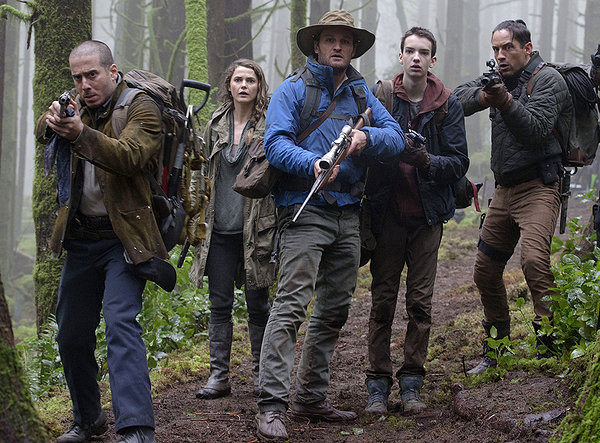 Because there is so much focus placed on telling “Dawn” through an ape’s perspective, it’s a good thing the CGI and special effects are so well done. Designed by WETA studios and motion-captured by the great Andy Serkis (who was also Gollum in the “Lord of the Rings” trilogy), the dynamite collaboration add a true sense of realism to the primate population. We’re not talking about the characters from the 1960s and 1970s versions. These apes are startlingly realistic.
Because there is so much focus placed on telling “Dawn” through an ape’s perspective, it’s a good thing the CGI and special effects are so well done. Designed by WETA studios and motion-captured by the great Andy Serkis (who was also Gollum in the “Lord of the Rings” trilogy), the dynamite collaboration add a true sense of realism to the primate population. We’re not talking about the characters from the 1960s and 1970s versions. These apes are startlingly realistic.
When it comes to the non-CGI created sapiens, Jason Clarke is a welcome replacement for James Franco. His brooding, stoic demeanor perfectly meshes with the dark and dingy atmosphere director Reeves and production designer James Chinlund (The Avengers) craft.
There’s no denying that Malcolm’s growing relationship with Caesar carries the bulk of the human/ape story, but supporting cast members Keri Russell (FX’s The Americans) and Gary Oldman (The Dark Knight) are both killer when used. Russell scales back her in-your-face acting style she uses in “The Americans” and delivers a much more subtle performance as Ellie, Malcolm’s love interest. Oldman is equally fitting as the leader of the surviving San Francisco colony.
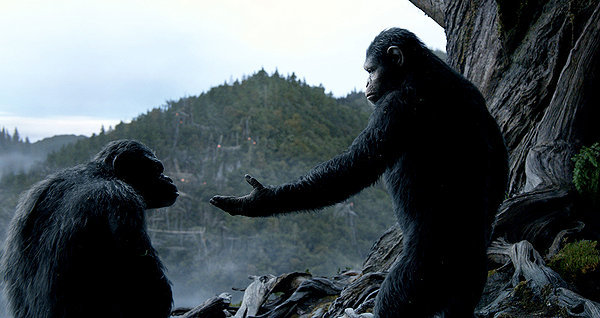 Moving in a completely different direction with casting was an excellent choice for the longevity of the series, but bringing on Matt Reeves to handle directorial duties was by far the best tweak to the franchise. Using the same engrossing style that turned handheld-found-footage flick “Cloverfield” into a box office smash, Reeves and cinematographer Michael Seresin (Midnight Express) bring us right into the heart, and sometimes even behind the eyes — through point-of-view camera shots — of both man and ape.
Moving in a completely different direction with casting was an excellent choice for the longevity of the series, but bringing on Matt Reeves to handle directorial duties was by far the best tweak to the franchise. Using the same engrossing style that turned handheld-found-footage flick “Cloverfield” into a box office smash, Reeves and cinematographer Michael Seresin (Midnight Express) bring us right into the heart, and sometimes even behind the eyes — through point-of-view camera shots — of both man and ape.
Using a script by Rick Jaffa (The Relic), Amanda Silver (The Hand That Rocks The Cradle), and Mark Bomback (Total Recall), “Rise” also deals with some pretty heavy material despite its primetime summer release date. It’s all but impossible to not feel for Caesar’s ape family as we watch them begin to make the same mistakes mankind has made in our own societal development. It’s definitely an eerie parallel, and a poignant social critique that is always present, yet never overtly discussed.
If 2011’s “Rise of the Planet of the Apes” was a reboot done right, “Dawn of the Planet of the Apes” is far and away the best possible sequel for such a great restart. Combining great acting, mesmerizing special effects, an absorbing score by Oscar winning composer Michael Giacchino (Up) and telling a story that is both action packed, yet remarkably emotional, “Dawn” is my frontrunner for best movie of the summer.
I might have to send Caesar and his friends after you if you don’t take my word for it.
Running time: 2 hours 10 minutes
Rated PG-13 for intense sequences of sci-fi violence and action, and brief strong language
By David Morris







